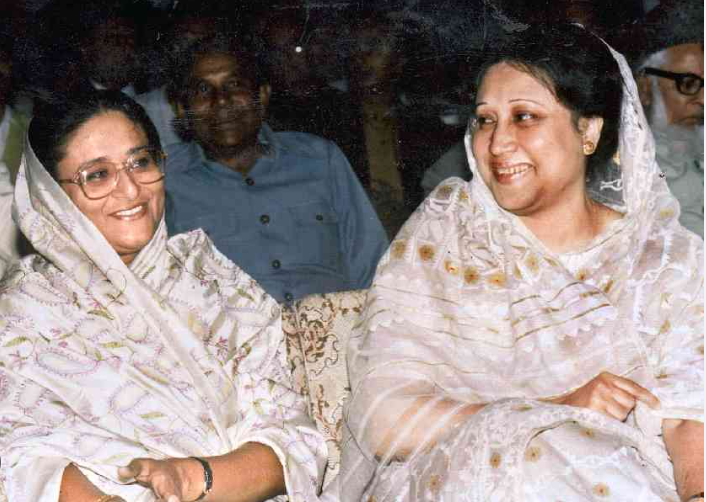Virendra Pandit
New Delhi: Fearing electoral reverses once again, Bangladesh’s main Opposition party, the Bangladesh Nationalist Party headed by two-time former Prime Minister Khaleda Zia, and other opposition groups, started a ‘general strike’ on Saturday, ahead of the Sunday elections to Parliament.
These opposition parties, supported by Islamic militants, are boycotting the polls, claiming they cannot guarantee its fairness under Prime Minister Sheikh Hasina Wajed, 76, who is seeking to return to power for a fourth consecutive term of five years.
PM Hasina is the daughter of Bangladesh’s founding President Sheikh Mujubur Rehman while her rival Khaleda is the wife of former army officer and ex-President Ziaur Rahman (1977-81).
The Election Commission said voting would start Sunday morning and last for eight hours across over 42,000 ballot stations, set up for over 119 million registered voters to cast votes. Ballot boxes, among other election materials, have been sent over to the respective polling booths, according to the media reports.
The BNP vowed to disrupt the “unfair” election, calling for strikes and urging people to join the boycott. On Saturday morning, a small group of BNP activists marched across the Shahbagh neighborhood in the national capital, Dhaka, trying to persuade the people to join the strike.
At the march, Ruhul Kabir Rizvi, a BNP Joint Secretary General, reiterated his party’s demand for PM Hasina to resign, calling the election “skewed.”
“The government is again playing with fire. The government has resorted to its old tactics of holding a one-sided election,” he said.
Campaigning in the nation of 169 million people has been marred with violence, with at least 15 people killed since October 2023, the reports said.
On Friday, an apparent arson fire on a train in Dhaka killed four people, heightening the apprehension ahead of the vote.
Foreign Minister A.K. Abdul Momen said the timing of the attack, just a day before the election, was to hinder the democratic process. “This reprehensible incident, undoubtedly orchestrated by those with malicious intent, strikes at the very heart of our democratic values,” he said.
Local media reported arsons targeting at least five polling stations outside Dhaka since Friday, with police calling them acts of sabotage.
The Election Commission has asked authorities to increase security around polling stations.
Sunday’s election comes amid an increasingly polarized political culture led by two powerful women, Hasina and Zia.
Begum Khaleda Zia, 78, is ailing and currently under house arrest on various charges which, her party claims, were politically motivated.
Tensions spiked since October when a massive BNP anti-government rally in Dhaka turned violent after it demanded Hasina’s resignation and a caretaker government to oversee the election. The government, however, said there was no constitutional provision to allow it.
Critics have accused Hasina of systemically suffocating the opposition by implementing repressive security measures. Zia’s party claimed that over 20,000 opposition members have been arrested, but the government said those figures were inflated and denied arrests were made due to political leanings.
Bangladesh is a parliamentary democracy but has a history of military coups and assassinations.

